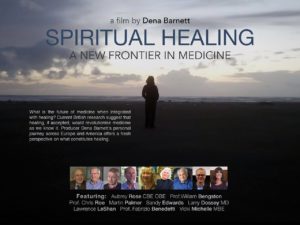 A film by Dena Barnett, Marco Ballerini and Dr. Sheelagh Donnelly
A film by Dena Barnett, Marco Ballerini and Dr. Sheelagh Donnelly
This new film on spiritual healing aims to make healing a part of everyday healthcare. Now nearing completion, the producer Dena Barnett tells her own personal story here – the one that led to the movie.
I was asked recently why I decided to make a film about spiritual healing. It all comes down to my role as a caregiver and my relationship with my alcoholic father. In his final illness, I became so angry with the council who I wanted to sue for healthcare negligence (apparently you cannot sue the council); and the paramedic who shouted at me in front of my father when he couldn’t breathe because I had called the ambulance, in his opinion, too many times.
Why had doctors forgotten to heal? When had ‘healing’ become an embarrassment? I had naively assumed that healing was an implicit part of medical practice.
Creating a film is one of the most difficult and challenging things you can do but people naturally want to know why, especially if the film is about you and your incredibly intimate, emotional life experiences.
How do you make sure that your personal story will interest and inform others? How can you offer the personal and universal, the informative and therapeutic?
I inherited a sense of curiosity from my father that has always led me to question what I see with an open mind, while at the same time recognizing that people and events can and do conspire to influence you in ways that perhaps make no logical sense at the time. As Professor William Bengston put it, “I became a “failed skeptic.”
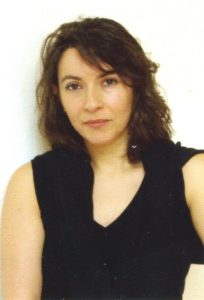 My personal journey:
My personal journey:
I was a long-time caregiver in my late 40s. Someone who the native Mexicans would refer to as ‘acomodador’, someone who had reached the point of giving up.
When my father lost his wife after a 47-year marriage in 2006, he literally drank himself to death until his best friend found him on the bathroom floor. He clinically died twice – once of a stroke and once of a heart attack. His health issues were multiple ranging from chronic depression to cancer.
One day, I was living in my father’s house in a dormitory town outside London, afraid to wake up again at 6 am to the sound of my father pushing himself drunk along the parquet floor to the bathroom, and the next day I was interviewing a man in Port Jefferson, Upstate New York who for over 35 years has been investigating the mystery of hands-on healing that may advance healing and cure cancer.
The most fundamental part of my life story is not just the story that connects me emotionally and creatively to my father, but what convinced me to make this film which changed my life and my world view.
My father and I connected on many levels. Dad wanted to be a doctor and a writer. I wanted to be an actress and a producer. When I graduated from university, I worked for Carlton Television as a researcher and as an assistant director on the soap opera ‘Crossroads’.
One of many projects took a family story to explore immigrant life in the East End of London – my roots. When my father suggested that I trace his grandfather’s burial site in Enfield, North London, I witnessed hundreds of Hasidic Jews praying around a neighboring grave belonging to a once renowned Rumanian Rabbi.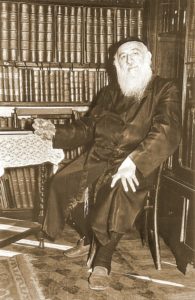
According to a Chief Rabbi of Boyle Heights Synagogue in LA, what I saw was “One of the most intriguing contemporary practices of worship in the 21st century: Tsaddik worship.” This is a profound act of Jewish spiritual healing.
These ‘pilgrims’ had traveled across the world in search of one holy man’s compassion. I wanted to know who they were praying to. When the caretaker informed me that thousands of Jews and non-Jews from all over the world had been coming every Friday before noon since 1958 to seek the blessing and healing of this departed Rumanian Rabbi, I wanted to understand why.
I am of a 4000-year religion. I am expected to be religious. I am also a daughter of the commandments, a teacher from North London. However, religiosity had skipped a generation in my case and I became an atheist like my father.
What did I know or care about these people or their ‘pilgrimage’? The last thing I intended to do in my 50s was to make a film about the role of healing in medicine. Nonetheless, this experience, along with meeting a healer whose friend was also a healer from the East End who had offered healing to my father, confirmed that healers and healing are real.
This experience kick-started a personal and scientific journey which became my film, ‘Spiritual Healing: A New Frontier in Medicine’. If healing works, could it be used to treat illness in the 21st century? These experiences are universal. My story is only one interpretation. The real story and the reason why I chose to make this film is for the same reason I became a teacher and my father’s caregiver: part duty, part love.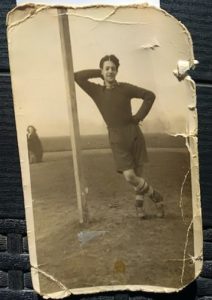
Today this film which is still in the making has inspired plans for a conference and has the support and participation of some of the leading scientists, philosophers, healers, and doctors around the world who are involved in researching this phenomenon. Together with Marco Ballerini, a brilliant film director and with the assistance of Dr. Sheelagh Donnelly, a GP and healer herself, I am close to completing this film which I hope will be the first of a series as healing is such an interesting and wide-reaching subject.
If I had taken the advice of a family friend, who warned me not to look after my Father when my Mother passed in 2006, there is no doubt my life would have brought me more of the normal things in life, like marriage and children. As Hippocrates once said, “Healing is a matter of time but it is also sometimes a matter of opportunity.” And as Daniel Benor MD, one of the consultants for this film, wrote in his book, ‘Spiritual Healing Scientific Validation of a Healing Revolution’, “Life is a spiritual experience”. I am not devoted to spiritual healing but since 2015 I have devoted my life to producing a film about it.
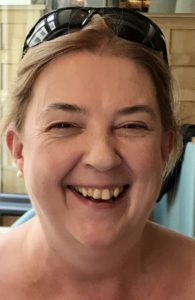 Sheelagh Donnelly GP writes:
Sheelagh Donnelly GP writes:
“This film is as unique as it is important because it is an objective investigation into the phenomenon of spiritual healing triggered by Dena’s experience of watching her father, a confirmed atheist, benefit from healing at the end of his life. It is a beautiful and profound account of both giving and receiving healing and touches on the scientific research that we can now offer to both skeptics and healthcare organizations.
If you are a healer who wishes to see spiritual healing routinely offered alongside everyday healthcare, then you need to support this film because it will educate people and open their minds to the inclusive spirituality that underpins our work and the benefits it can bring. Thank you.”
